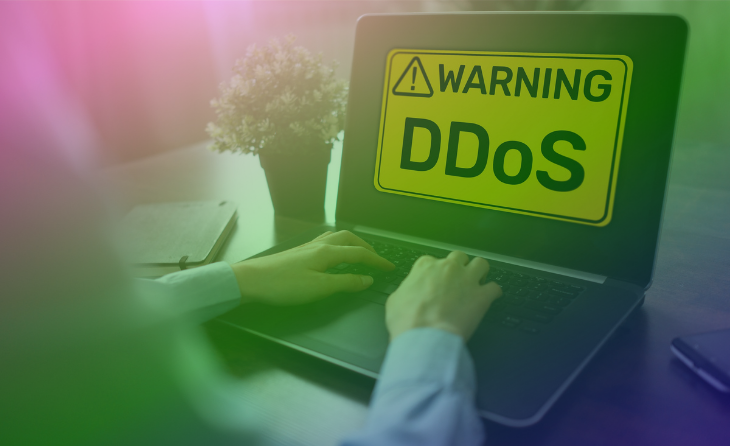In today’s digital age, where businesses rely heavily on their online presence to operate efficiently and effectively, the threat of Distributed Denial of Service (DDoS) attacks looms large. These malicious attacks can disrupt a company’s website, online services, and their bottom line. Therefore, it is imperative for every business, regardless of size or industry, to invest in robust DDoS protection measures to safeguard their online infrastructure and ensure uninterrupted operation. Delve into why DDoS protection is necessary for businesses in the modern landscape and the potential repercussions of inadequate protection.
Table of Contents
The Impact of Cyber Threats on Digital Operations
Cyber threats, such as DDoS attacks, can have a devastating impact on digital businesses. These attacks involve flooding a website or online service with overwhelming traffic, causing it to become slow or completely inaccessible to legitimate users. For businesses that rely on their online presence to attract customers, process transactions, and deliver services, even a brief disruption can lead to loss of revenue, damage to reputation, and loss of customer trust. DDoS attacks can also lead to data breaches, exposing sensitive information to cybercriminals and putting the business at risk of fines, legal consequences, and further attacks.
Investing in DDoS protection is crucial for businesses of all sizes and industries to mitigate the risks posed by cyber threats. Partnering with a reputable DDoS protection company can help businesses implement robust solutions to detect and mitigate attacks before they impact digital operations, ensuring online services remain available and secure. By implementing proactive measures to prevent DDoS attacks, businesses can protect their reputation, maintain customer trust, and avoid costly downtime. With the increasing frequency and sophistication of cyber threats, prioritising DDoS protection is essential for digital businesses’ long-term success and resilience in today’s hyper-connected world.
DDoS Attack Detection and Prevention
DDoS attacks are a serious threat to businesses of all sizes, disrupting service availability and potentially leading to significant financial losses. To prevent these attacks from causing harm, businesses need to implement effective detection and prevention measures. One technique for detecting potential DDoS attacks is monitoring network traffic for unusual patterns or spikes in activity. Using advanced analytics and machine learning algorithms, businesses can identify suspicious traffic and proactively mitigate the threat before it escalates.
Another important technique for preventing DDoS attacks is implementing a strong firewall and intrusion detection system. These security measures can help to filter out malicious traffic and prevent it from reaching the target network or server. By continuously updating firewall rules and keeping security systems patched and up to date, businesses can reduce their vulnerability to DDoS attacks and minimise the impact on their operations. Additionally, businesses should consider partnering with a reputable DDoS protection service provider to enhance their cyber resilience and ensure robust protection against evolving threats.
Maintaining Regulatory Compliance
Maintaining regulatory compliance is crucial in cybersecurity, especially when it comes to protecting against DDoS attacks. Industry regulations such as the General Data Protection Regulation (GDPR) or the Payment Card Industry Data Security Standard (PCI DSS) have specific requirements for ensuring the security and integrity of online operations. By aligning DDoS protection strategies with these regulations, businesses can demonstrate their commitment to safeguarding sensitive data and maintaining a secure online environment for their customers.
Compliance with industry regulations also helps businesses mitigate potential legal risks and liabilities associated with DDoS attacks. Non-compliance can result in severe penalties, fines, and reputational damage that can cripple a business’s operations. By investing in DDoS protection technologies and policies that align with regulatory standards, businesses can proactively address potential vulnerabilities and demonstrate their commitment to data security and compliance.
Maintaining regulatory compliance is not just a matter of legal obligation – it is a strategic imperative for businesses seeking to protect their online assets and maintain the trust of their customers. By adopting a proactive approach to DDoS protection that aligns with industry regulations, businesses can stay ahead of potential threats and ensure the continuity of their online operations in an increasingly hostile cybersecurity environment.
Building a Comprehensive Security Strategy
A comprehensive security strategy integrating DDoS protection is essential in today’s cybersecurity landscape. While DDoS attacks specifically target a company’s online services, having a broader security strategy can help mitigate such attacks’ impact and protect a business’s overall infrastructure. By incorporating DDoS protection into a larger cybersecurity framework, companies can better defend against a wide range of threats and vulnerabilities, reducing the overall risk of cyber attacks.
A holistic approach to cybersecurity ensures that a business is well-prepared to handle DDoS attacks and helps identify and address other potential security risks. Businesses can create a more resilient and secure online environment by investing in robust security measures beyond DDoS protection. Additionally, a comprehensive security strategy can help comply with industry regulations and standards, enhancing the overall credibility and trustworthiness of a company’s online presence.
In conclusion, integrating DDoS protection into a broader cybersecurity strategy is crucial for businesses looking to safeguard their online infrastructure and maintain uninterrupted operation. Companies can better protect their assets, data, and reputation by building a comprehensive security framework that addresses various cyber threats. Investing in robust security measures is a proactive step towards mitigating DDoS attacks and a fundamental requirement in today’s digital age.











